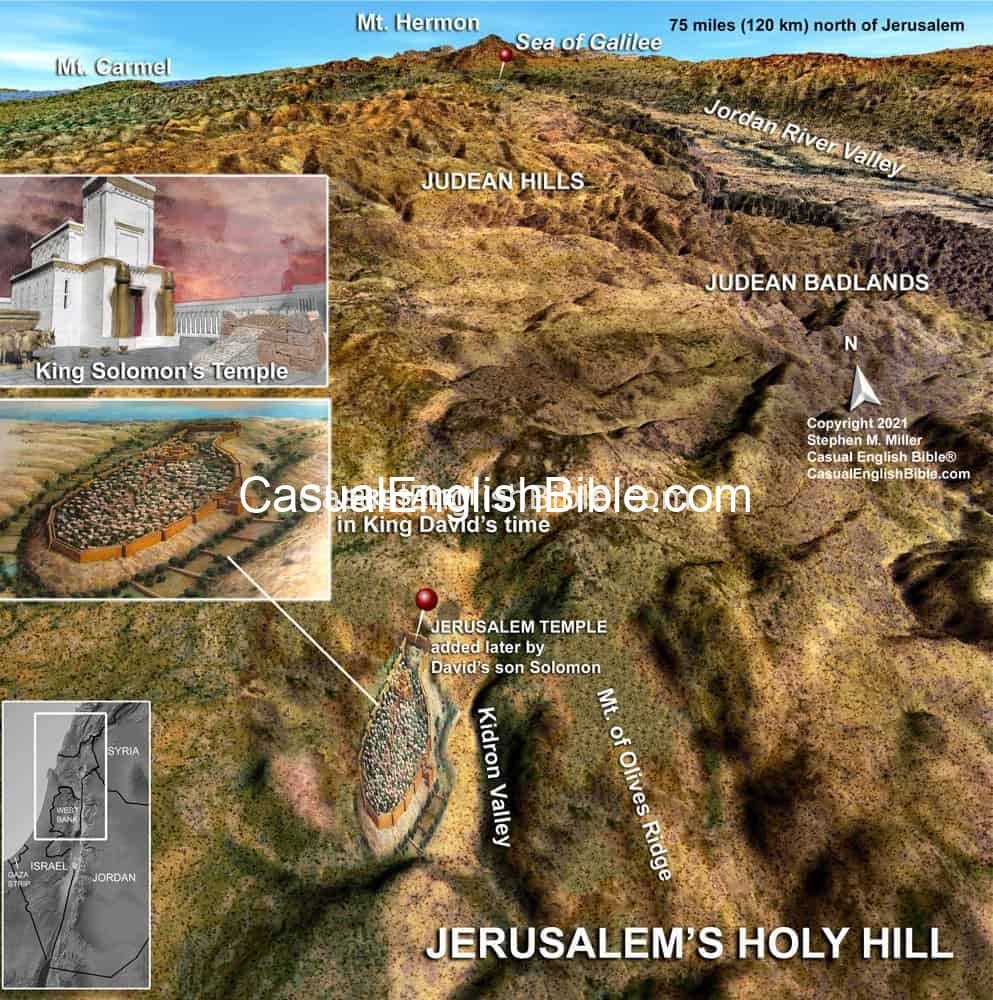Isaiah 4
Cleaning up Jerusalem
”Marry us”
1When that day comes, there won’t be many men left. Seven women will negotiate to gang-marry one man. They’ll say,“It won’t cost you anything. [1]
We’ll buy our own food and clothes.
Just give us your name
And remove our shame.” [2]
Branch of honor
2On that day, the LORD’s branch [3]
Will blossom into beauty and honor.
Fruit will return to the land
As dignity and respect,
Feeding everyone who survived in Israel. [4]
Everyone who stayed in Jerusalem
All who survived the destruction
Are holy [6] people devoted to God.
4The LORD will wash away the dirt
Jerusalem’s women brought to town.
He’ll get rid of all the blood stains
With the cleansing power of fire.
God protects the Temple
5The LORD will cover Jerusalem’s Temple hilltop. He’ll create a canopy of clouds in daytime and of glowing smoke on fire at night. His canopy will protect everything that’s sacred on this hill. [7] 6The LORD’s canopy will provide shade during the heat of the day and shelter in the stormy rain.Footnotes
Marriage customs varied from place to place and time to time even among the Jew. But Jewish law in the time of Moses required men to pay a bride’s fee of 50 silver shekels (1.25 pounds, 570 grams). See Deuteronomy 22:29. Husbands also had to promise to provide “food, clothing…sexual intimacy” (Exodus 21:11).
In a patriarchal Man’s World, women found their identity in their husband and in the children they provided for him. In those days, a woman on her own would have been a bit like a little girl on her own today. Not many legal rights. Few opportunities to make a living. And no respectable way to have children. A child born outside of marriage could never step inside the worship center. Nor could any of his or her relatives for 10 generations (Deuteronomy 23:3).
Scholars interpret “branch” many ways. Some say it’s “radiance,” “sprout” of new growth, or the “appearance of the LORD.” But most Christian scholars, today and in ancient times, said the word refers to an end-time messiah king who will reign in a glorious age to come. Other prophets who seemed to use “branch” this way include Jeremiah (33:15) and Zechariah (3:8). In the context here, it seems to refer to a time after Assyrian invaders from what is now Iraq erased the northern Jewish nation of Israel from the political map (721 BC) and after Babylonian invaders did the same to the southern Jewish nation of Judah (586 BC). Jews were exiled from their homeland each time. But Jews began returning in the 500s BC to rebuild their nation. They won their independence for a time, until Romans arrived in the 100s BC. But they never regained the power and glory we read about in the days of King David and his son King Solomon.
It’s uncertain if “Israel” refers to the northern Jewish nation or to both Israel and Judah, who together used to be called Israel before they split in two. Scholars who say “branch” refers to a coming messiah king often say this reference to Israel refers to both Jewish nations because the messiah is supposed to become a savior for all God’s people (Jeremiah 23:5-6).
Zion is an endearing nickname for Jerusalem, perhaps a bit like Big Apple for New York City or City of Angels for Los Angeles.
“Holy” often means devoted to God or reserved for his use. Worship utensils such as lampstands were considered holy because they were reserved for sacred use, devoted to God. People, too, were considered holy when they devoted themselves to God. It’s not that they were perfectly behaved. It’s that they knew they belonged to God.
Clouds and fiery smoke are reminiscent of the column of clouds and glowing smoke that led Israelites out of Egypt in the exodus with Moses. The clouds and fire came to represent the presence of God (Exodus 40; Numbers 9; 1 Kings 8). It isn’t a canopy that would protect the Temple. It was God. The canopy in this case may have been a metaphor, not a visible cloud like the one reported in Exodus.
Discussion Questions
- Sorry, there are currently no questions for this chapter.










